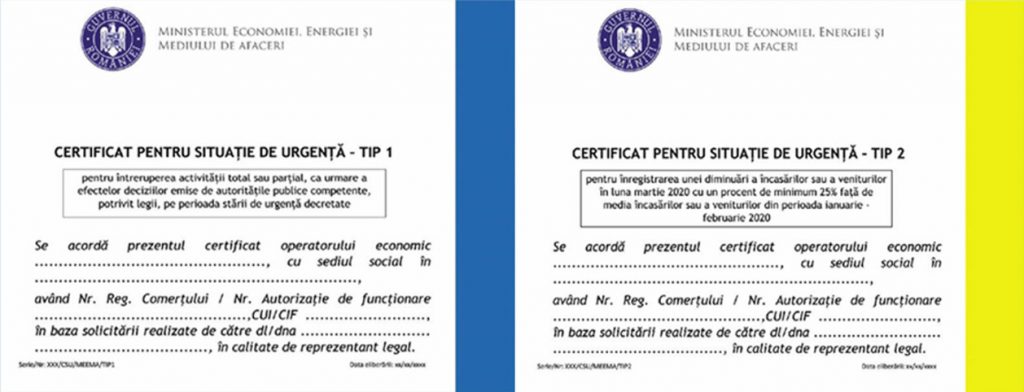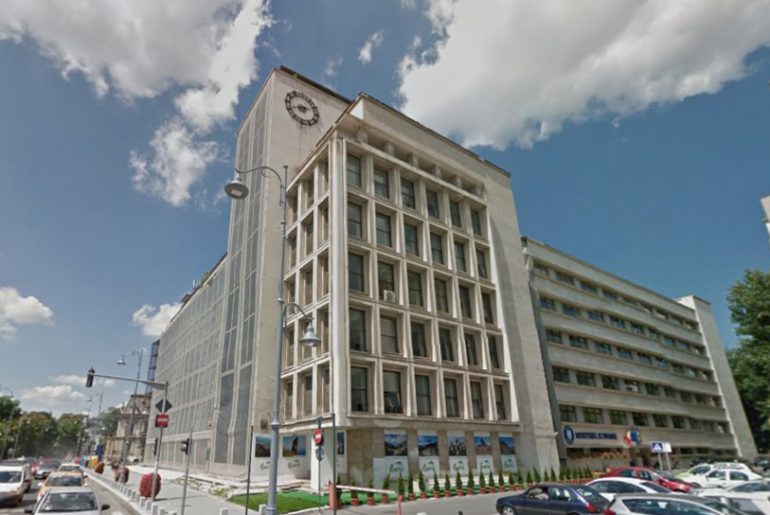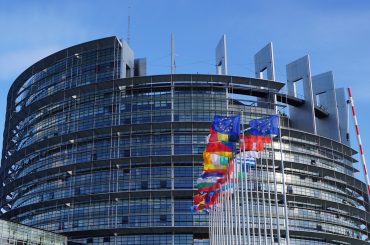PNSA COVID-19 Legal Response Team
The Emergency Situation Certificate (“ESC”) is a new legal instrument introduced in the Romanian landscape in the extraordinary context of COVID-19 pandemic and the state of emergency that has been declared by the Presidential Decree no. 195/March 16, 2020.

Anticipated by the Presidential Decree, the ESC has been regulated by several enactments,[1] the provisions of which are not yet fully corelated and are evolving constantly. Thus, a more crystallized framework of the ESC is expected to emerge in the following period.
The ESC is a novel concept in Romania, conceived out of the demand for a simple and efficient instrument for preserving the liquidities of its holders and for rapidly filtering prospective beneficiaries of certain benefit schemes. However, an apparent downside of devising such an instrument in a short timeframe, under a consistent pressure not only from a time perspective, but also at a social and economic level, is a resulting product of an unclear legal regime. Nonetheless, as with all new legal concepts/instruments, the doctrine and case law to come will likely clarify at least some of the ambiguities.
Main features
What is the ESC?
The ESC is:
- An extraordinary temporary instrument, to be applied for and issued solely during the state of emergency;
- An expedited and accessible tool, i.e. the ESC is issued automatically, based on a standard application lodged in electronically on a designated platform, free of any charge;
- A legal precondition in order to benefit from the application of some specific legal provisions enacted in the context of COVID-19 pandemic;
- Meant to give controlled access to several benefits and measures designed to help the business owners and professionals affected by the COVID-19 pandemic;
- A mean of evidence of the impact of the COVID-19 pandemic over the business activity of its holder;
- A trigger for a relative presumption of force majeure in the benefit of its holder,
- Complementary with other legal instruments (such as the certificate of force majeure).
The ESC is not:
- A force majeure certificate (“FMC”) issued by the chamber of commerce and industry under Law no. 335/2007.
As with the FMC, the ESC evidences that the activity of its holder has been affected by a force majeure event, yet in an expedited and free of charges procedure. However, the ESC is different from the FMC:- as regards its beneficiaries – the ESC may be applied for by a limited category of entities, while any interested entity may apply for the FMC;
- in the way it is issued – the ESC is issued electronically, without evaluating whether the applicant was eligible or not to apply for ESC, nor the fulfilment of the prerequisite conditions; the FMC is not issued automatically, but after a thorough assessment of the supporting documentation filed to this end;
- as to the areas covered thereby – the ESC generally attests that the activity of the holder has been impacted by COVID-19 pandemic and the decisions/actions/measures took by the public authorities for containing the virus; the FMC attests that its holder’s performance under a specific contractual relationship has been affected by a force majeure event;
- as to the rights conferred upon its holder – the ESC enables its holder to have access first and foremost to some specific measures and benefits regulated by special enactments (e.g. deferral of payments due under the ongoing utilities contracts and lease contracts as per GEO no. 29/2020); the FMC enables its holder to have recourse to the general remedies provided by the contract and the law in case of force majeure (i.e. liability exemption, suspension/termination)
- as regards its probative value – the ESC has likely a probative value more reduced than the one of FMC, taking into account that ESC is issued, based only on applicant’ sworn statement (without an evaluation on the merits).
One may – and in certain situations is even recommended to – apply for both. The ESC may represent a supporting document, along with other documents, for the issuance of the FMC.
Are there any prerequisite conditions for the ESC?
YES, there are. The applicant must have incurred at least one of the following consequences when applying for ESC:
- Business interruption (totally or partially), as a result of the effects of the decisions issued by the public authorities, according to the law, during the period of the state of emergency.[2]
For instance, the economic operators whose business activities have been interrupted as a result of the decisions issued by the public authorities are:- the economic operators which carry out their business in the following economic areas: cultural, scientific, artistic, religious, sport, entertainment, gambling, personal care and spa activities (including cinemas, theaters, gyms);
- the economic operators which carry out their retail activities of products and services in the commercial centers (like malls) where multiple operators are carrying out their business activities, save for certain economic operators;[3]
- the economic operators which are operating restaurants, hotels, cafes or other public establishments that provide on-premises serving and consumption of food products and alcoholic/nonalcoholic beverages[4];
- the economic operators which carry out their activities in dentist practices.
It remains to be seen whether the business interruption cases will be limited to those imposed by the authorities’ decisions (as a rigid interpretation of the text would suggest) or if the cases may include indirect interruptions as a result of the actions/measures adopted by the public authorities in the context of the COVID-19 pandemic. From an interpretation provided by the Ministry of Economy on its platform (in Q&A section),[5] it would appear that a more flexible approach would be adopted[6], but without a clarification enacted by way of a legal norm, the exact limits are for now unclear.
Even though the law is silent, the interpretation/clarification coming from authorities[7] suggests that the ESC may still be applied for even though the pandemic affected only the secondary activities of the applicant (not its main business scope).
- Drop of revenues or drop of encashments by at least 25% in March 2020 as compared with the average level registered in January and February 2020.
It is not clear whether the drop of the revenues/encashments must be caused by a decision of the public authorities, or may be also triggered by any actions/measures taken by the public authorities in the COVID-19 pandemic context. One may reasonably argue that the second interpretation is the correct one.
The applicant has to certify by means of a sworn statement that the relevant prerequisite condition (i.e. business interruption or severe drop of revenues/encashments) is true, accurate and complete.
One must pay attention to the fact that any untrue or inaccurate certification may expose the applicant to civil, contraventional and even criminal liability (under article 326 of the Romanian Criminal Code).
Considering the severity of the sanctions, the applicant should perform a thorough analysis of the fulfilment of the prerequisite conditions (prior to lodging the ESC application), preferably by consulting a specialist in the field and validating the scenario at hand with the relevant authorities when needed.
For what it serves?
Currently, the scope of use of ESC, as expressly set out in the relevant legislation, is:[8]
- for small and medium enterprises (SMEs), to benefit of deferral of payments due under the ongoing utilities contracts and lease contracts regarding HQ/secondary units, concluded before the state of emergency was declared, as per the conditions stated under article X paragraph (1), of the GEO no. 29/2020[9];
- for the SMEs, to benefit of the force majeure presumption with respect to ongoing agreements (other than utilities contracts and lease contracts regarding HQ/secondary units), concluded before the state of emergency was declared, as per the conditions stated under the article X paragraph (3) of the GEO no. 29/2020;
The SMEs – holders of an ESC – may claim (unless prohibited by the contract) to be exempted from liability and/or, as applicable, relieved from their obligations under the respective agreements, if they were affected by an action taken by the public authorities in response to the COVID-19 pandemic. Basically, the affected SMEs is deemed to have met the burden of proving the force majeure impact by the presentation of the ESC, unless expressly provided otherwise by the contract. The force majeure presumption is only relative and may be reversed by the other party, by demonstrating that the COVID-19 pandemic circumstances did not actually impede the claiming party to perform its specific obligations under the contract.
- for the debtors under a credit/leasing[10] agreement, to benefit, upon request, of the payment suspension of rates, interest and related commissions under the respective credit/leasing agreements, for a period of maximum 9 (nine) months, but not later than December 31, 2020, under the conditions stated under the article 6 of the GEO no. 37/2020;
- to benefit of other specific measures/facilities, to the extent such are/will be expressly regulated.
The possibility to use the ESC for other purposes than those expressly provided remains to be further clarified.[11]
Once obtained, there is no impediment for using the same ESC for multiples purposes (for example, to postpone the payments due under the ongoing lease contracts regarding HQ and to benefit of force majeure presumption under a lohn/manufacturing agreement), to the extent such use is compliant with the relevant legal provisions.
Are there several types of ESC?
YES, there are two types of ESC, namely:
The Blue ESC – for the applicants whose business activity has been interrupted (partially or totally), as a result of the effects of the decisions[12] issued by public authorities during the state of emergency period; and
The Yellow ESC – for the applicants whose revenues or encashments registered in March 2020 have dropped by at least 25% as compared with the average revenues/encashments registered in the period January – February 2020.
The type of ESC does not depend upon the scope of use of ESC. However, in order to have access to a specific benefit, the provision of a specific type of ESC is required:
- In some cases, the relevant legal enactments specifically provide that either type of ESC is sufficient for an operator to have access to a specific legal remedy (e.g. payment suspension of rates, interest and related commissions under GEO no. 37/2020 may be obtained based on either a Blue or a Yellow ESC).
- In other cases, the relevant legal enactments do not expressly require a certain type of ESC. In such a case, the type of ESC actually required is to be determined by reference to the other conditions provided for by the legal norm (e.g., GEO no. 29/2020, article X paragraph (1) provides that the payment deferral under the utilities contracts and lease contracts regarding HQ/secondary units is applicable in case of business interruption caused by the decisions issued by public authorities, which infers that a Blue ESC is required).
How many ESCs may one apply for?
Even if the applicant might qualify for both types of ESC, it may apply for and obtain only one (either the Blue or Yellow ESC) during the state of emergency.
Procedure
Who issues the ESC?
The ESC is issued by the Romanian Ministry of Economy, Energy and Business Environment.
Who can apply for it?
Only some specific categories of persons may apply for ESC.
First, the applicant must be an economic operator affected in the context of SARS-CoV-2.
Second, the applicant must have an entitlement under the specific enactments regulating measures granted in the state of emergency context (e.g. GEO no. 29/2020, GEO no. 37/2020). For instance:
- small and medium enterprises (SMEs), as such are qualified under Law no. 364/2004;
- legal practices[13] (including the ones performing services of public interest);
- family medical practices and dental practices whose personnel is not exceeding 20 persons[14];
- sport clubs and national sport federations that are title holder of sportive identity certificate[15];
- self-employed (Ro. persoane fizice autorizate – PFA), sole proprietorship (Ro. întreprinderi individuale) and family partnership (Ro. întreprinderi familiale), as such are qualified under the GEO no. 44/2008[16];
- other practices that are performed under special regulatory legal provisions;[17]
- other entities (including large enterprises) expressly provided to have an entitlement by the relevant enactments.
Natural persons (individuals) do not qualify and cannot apply for ESC.
Additionally, depending on the intended scope of use of ESC, the respective subject has to observe additional specific eligibility criteria.
How does the ESC application actually work?
The ESC application may be performed exclusively online, through the designated platform (http://prevenire.gov.ro/). The platform has become operational as of 6 April 2020.
The ESC application is made based on two documents, namely: (i) the standard application and (ii) the standard sworn statement, which are to be:
- filled in with the relevant information, electronically signed by the legal representative of the applicant and lodged on the said platform; or alternatively
- filled in with the relevant information and duly signed (i.e. via holograph signature) by the legal representative of the applicant and handed over to a proxy (i.e. the title holder of the electronic signature) in order to be electronically signed and uploaded on the said platform.
According to the clarifications provided by the authorities[18], even when applying for a Blue ESC, the data related to the income and encashments still needs to be filled in, for statistical purposes.
The lack of signature and stamp does not affect the validity of the ESC, which may be verified on the online platform http://prevenire.gov.ro/, based on affixed number and series.
The processing of application and the issuance of ESC certificate are free of charge.
Although the law does not provide guidance on the matter, if the wrong certificate was obtained (Yellow instead of Blue or vice-versa), the authorities instruct the applicants to describe the situation at the following email address: info.csu@imm.gov.ro.
Are there supporting documents required to be lodged in?
There are no specific documents (other than the sworn statement) expressly required to be lodged in, in support of the ESC application.
Nevertheless, the ESC application must be supported by relevant documentation, which would be presented to the authorities in case of inspection or control. Supporting documents any applicant should consider may include:
- certified balance sheet for the relevant month when the revenues/encashments have dropped by at least 25% (i.e. March 2020), certified balance sheet for the benchmark months of January & February;
- documents attesting the interruption of the activity (e.g. corporate decision to interrupt the activity);
- relevant contractual documentation, invoices and bank excerpts;
- relevant commercial correspondence with the contractual partner(s) or with the public authority (e.g., regarding the supply-chain “interruption” or the circumstances under which the business has been affected by the actions/measures/decisions taken by the public authorities);
- the decisions issued by public authorities and the actions/measures taken in the pandemic context which have affected the business.
How long does it take?
The ESC shall be issued electronically/online, immediately after validation of the application.
When is the deadline for applying for ESC?
ESC may be applied for and issued exclusively during the period for which the state of emergency remains in force in Romania. The current duration of the state of emergency expires on April 16, 2020, but the President has publicly announced that it will be extended by another month.
How long will the ESC remain valid?
The Order no. 791/2020 is silent with respect to the validity period of the ESC.[19]
Since it represents a „triggering event” for obtaining the specific benefits provided by the relevant legislation, it results that the ESC must be used by its holder rapidly, exclusively during the emergency state period.
By Raluca Petrescu and Mihaela Ion
[1] The ESC is regulated by several enactments, namely:
– the Order no. 791/March 25, 2020 issued by the Romanian Ministry of Economy, Energy and Business Environment („MEEMA”) regarding the procedure for issuance of CSU Certificate (“Order no. 791/2020”), as such has been subsequently amended by the Order no. 822/2020;
– the article X of the Government Emergency Ordinance no. 29/2020 regarding specific economic and fiscal-budgetary measures (“GEO no. 29/2020”);
– the article XI of the Government Emergency Ordinance no. 30/2020 on specific social protection and social assistance measures in the context of Covid-19 pandemic (as such has been subsequently amended by the Government Emergency Ordinance no. 32/2020);
– the article 3 of the Government Emergency Ordinance no. 33/2020 regarding specific fiscal measures and amendments to specific enactments;
-the article 6 of the Government Emergency Ordinance no. 37/2020 regarding some support measures for specific classes of debtors under the credit agreements concluded with credit institutions and non-banking financial institutions (“GEO no. 37/2020”).
[2] Such decisions have been enacted, for instance, via military ordinances: No. 1/March 17, 2020; No. 2/March 21, 2020; No. 3/March 24, 2020, No. 4/March 29, 2020; No. 5/March 30, 2020; No. 6/March 30, 2020, No. 7/April 4 2020.
[3] Under the Military Ordinance no. 2/2020 as subsequently amended by the Military Ordinance no. 3/2020 the following activities carried out in commercial centres/malls were permitted: selling of groceries, veterinary or pharmaceutical products, as well as cleaning services; the selling of electronic and household appliances, by economic operators which ensure the delivery at the domicile/workplace of the buyer; the selling of medical optic products/services.
[4] By way of exception, the selling of such products is permitted in systems which do not involve the clients remaining in the designated spaces (e.g. drive-in, room service, client delivery), as provided for under the Military Ordinance no. 2/2020.
[5] The Ministry of Economy published a Q&A on the ESC on its website, available at http://www.economie.gov.ro/q-a-obtinerea-certificatului-de-situatie-de-urgenta?fbclid=IwAR0W9cJmgn2JsVUX4EOpA2e0ezk2bkuizG9CEPF1JYB7a1FuH8uHMo7bLfA.
[6] A more flexible approach results also from the modification of article 2 of Order no. 791/2020 by means of Order no. 822/2020. While the initial version of the legal provision refers to a direct “cause-effect” relation between “decisions” and “business interruption” (i.e. “total or partial interruption as a result of the decisions issued by the competent public authorities”), the amended version speaks of mediated relation between “effects of the decisions” and “business interruption” (i.e. “total or partial interruption as a result of the effects of the decisions issued by the competent public authorities”) (emphasis added).
[7] See footnote 5.
[8] Initially, the ESC was also meant to be used by the employers for applying for the COVID-19 wage subsidy scheme made available by the Romanian Government to support employers affected by COVID-19. Pursuant to recent developments, the ESC is no longer required for such scope, a standard statement of the applicant being sufficient to this end.
[9] It is debatable if other entities (i.e. legal practices, medical practices and sport clubs/federations, provided they meet certain eligibility criteria) need an ESC in order to have access to the payment deferral regulated, as legal facility, by article X paragraphs (5), (9) and (10) of the GEO no. 29/2020. According to very recent enactments [such as Government Decision no. 281/2020 regulating the eligibility criteria of the beneficiaries provided under article X paragraph (5)], it would appear that they do not need an ESC to benefit of the said legal facility and that a simple sworn statement will be sufficient for such purpose.
[10] There are currently some discussions regarding the suspension of payments due under leasing agreements.. Secondary legislation (i.e. Government Decision no. 270/ 2020 for the application of GEO no. 37/2020) refers only to credit agreements.
[11] For instance, it is debatable whether ESC may be used to renegotiate contractual terms and adapt them, especially on the initiative of the party facing the inability to comply with a payment obligation, for which the force majeure is not applicable.
[12] Such decisions have been enacted, for instance, via military ordinances: No. 1/March 17, 2020; No. 2/March 21, 2020; No. 3/March 24, 2020, No. 4/March 29, 2020; No. 5/March 30, 2020; No. 6/March 30, 2020, No. 7/April 4 2020.
[13] [14] [15] See footnote 9.
[16] It appears (as implied by the Government Decision no. 270/ 2020 for the application of GEO no. 37/2020) that these entities are not, however, required to priory obtain an ESC in order to have access to the payment suspension regulated, as legal facility, by GEO no. 37/2020.
[17] See footnote 16.
[18] See footnote 5.
[19] Initially, the draft legislation stated that the ESC may be issued only during the emergency state period and will remain valid afterwards, until December 31, 2020.





